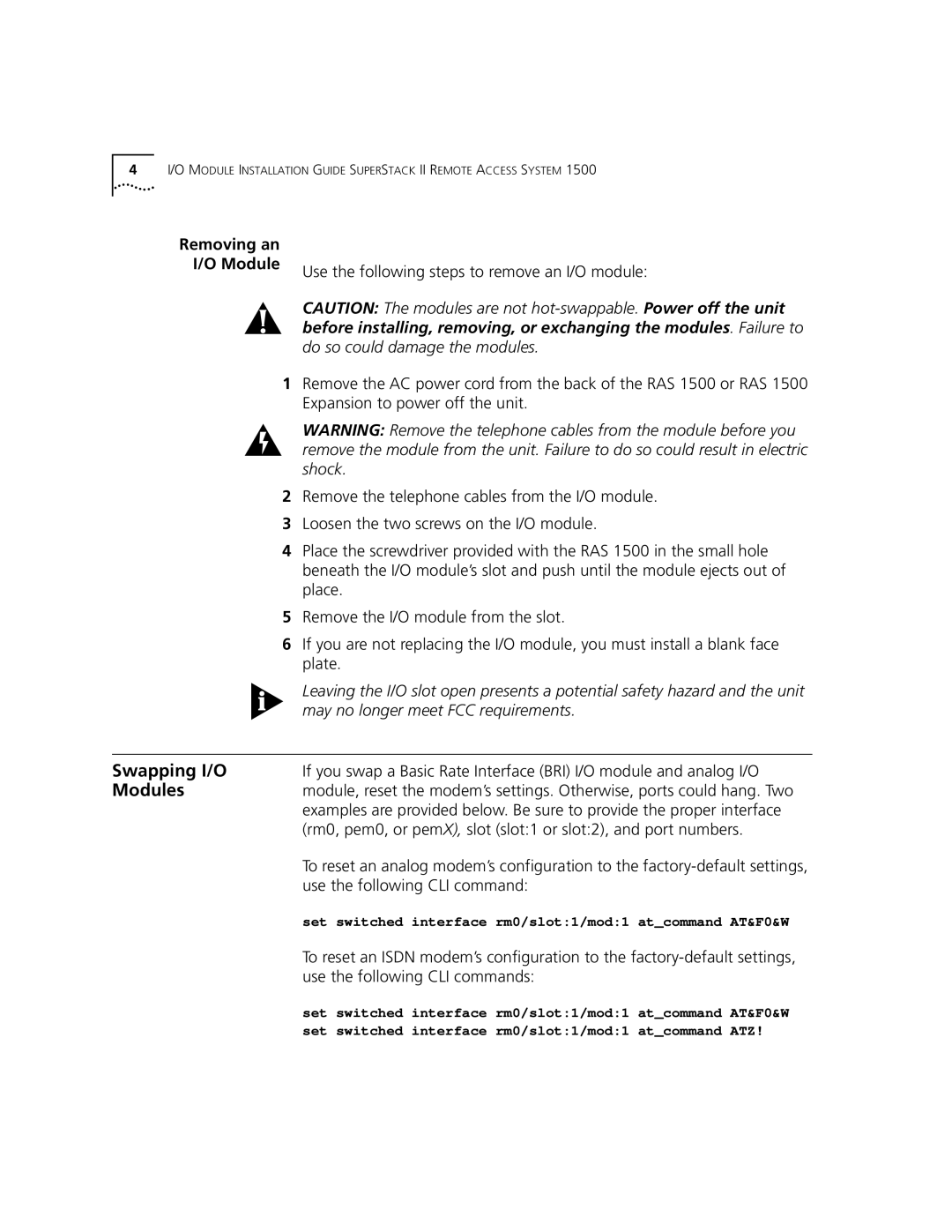
4I/O MODULE INSTALLATION GUIDE SUPERSTACK II REMOTE ACCESS SYSTEM 1500
Removing an I/O Module
Use the following steps to remove an I/O module:
CAUTION: The modules are not
1Remove the AC power cord from the back of the RAS 1500 or RAS 1500 Expansion to power off the unit.
WARNING: Remove the telephone cables from the module before you remove the module from the unit. Failure to do so could result in electric shock.
2Remove the telephone cables from the I/O module.
3Loosen the two screws on the I/O module.
4Place the screwdriver provided with the RAS 1500 in the small hole beneath the I/O module’s slot and push until the module ejects out of place.
5Remove the I/O module from the slot.
6If you are not replacing the I/O module, you must install a blank face plate.
Leaving the I/O slot open presents a potential safety hazard and the unit may no longer meet FCC requirements.
Swapping I/O | If you swap a Basic Rate Interface (BRI) I/O module and analog I/O |
Modules | module, reset the modem’s settings. Otherwise, ports could hang. Two |
| examples are provided below. Be sure to provide the proper interface |
| (rm0, pem0, or pemX), slot (slot:1 or slot:2), and port numbers. |
| To reset an analog modem’s configuration to the |
| use the following CLI command: |
| set switched interface rm0/slot:1/mod:1 at_command AT&F0&W |
| To reset an ISDN modem’s configuration to the |
| use the following CLI commands: |
| set switched interface rm0/slot:1/mod:1 at_command AT&F0&W |
| set switched interface rm0/slot:1/mod:1 at_command ATZ! |
